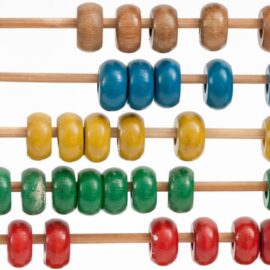

This article is an excerpt from the Shortform book guide to "Ikigai" by Héctor García and Francesc Miralles. Shortform has the world's best summaries and analyses of books you should be reading.
Like this article? Sign up for a free trial here .
What is logotherapy? What is the premise behind Viktor Frankl’s logotherapy approach to finding meaning?
Logotherapy is a meaning-based and purpose-centered psychiatric therapy developed by neurologist and Holocaust survivor Victor Frankl. Logotherapy offers a highly specific understanding of “meaning.” It says we don’t create our life’s meaning. Instead, we discover it. Logotherapy says each person has a unique meaning, which evolves throughout life.
Keep reading to learn about Viktor Frankl’s logotherapy approach to finding meaning in life.
What Is the Premise Behind Victor Frankl’s Logotherapy?
Logotherapy is unique among Western forms of psychotherapy because it focuses explicitly on helping people find meaning. Its purpose is to break the hold of your neuroses and enable you to face challenges effectively by helping you find a reason to live.
Viktor Frankl, logotherapy’s creator, was a prisoner under the Nazis in various German concentration camps. From this experience, he famously declared that you can take away literally everything from a person except their ability to choose their attitude. Frankl also said a clear life purpose enables a person to overcome virtually any challenge and endure virtually any conditions.
Frankl’s own biography demonstrates the reality of logotherapy’s core assumptions and existential value. During his imprisonment in the Nazi concentration camps, his captors took away the manuscript he brought with him that contained all of his initial writings about life purpose and psychological health—the precursor of logotherapy, his life’s work as a psychologist. He spent the rest of his time in the camps rewriting that manuscript. His drive for a purpose helped him survive such awful conditions. When he got out of the camps, he created logotherapy.
What follows is a description of how logotherapy is formally practiced, but bear in mind that you can derive many of its benefits on your own by reading Frankl’s classic book, Man’s Search for Meaning.
The formal practice of logotherapy takes place in five steps or stages:
- Someone feels empty or anxious.
- A therapist helps the person realize that her negative feelings are really the desire for a meaningful life.
- The patient discovers her life’s purpose, relative to that moment in time.
- The patient freely accepts that purpose. (It’s also possible for the patient to reject that purpose, in which case the therapist leads the patient to figure out why she feels that way.)
- With her newfound passion for life, the patient now overcomes her problems and sorrows.
Differences From Psychoanalysis
Logotherapy differs significantly from the more widely familiar psychotherapeutic approach of psychoanalysis. The differences show the fundamental value of logotherapy over psychotherapy for finding happiness through discovering your purpose:
- Logotherapy focuses on cultivating health, as opposed to psychoanalysis, which analyzes sickness.
- During sessions, the logotherapy patient sits up, facing the therapist, instead of reclining on a couch, thus undercutting the “sick patient” and “healing doctor” roles.
- Logotherapy looks forward to the patient’s future instead of backward toward past pains. It handles conflicts and crises as they present themselves instead of dredging them up through reflection.

———End of Preview———
Like what you just read? Read the rest of the world's best book summary and analysis of Héctor García and Francesc Miralles's "Ikigai" at Shortform .
Here's what you'll find in our full Ikigai summary :
- How to apply the concept of ikigai, or life purpose, to your own life
- Why the people of Okinawa live longer than people anywhere else
- The 10 commandments of ikigai






